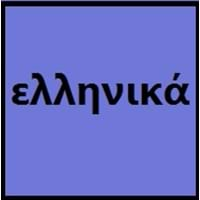Japanese vs Greek
- In Japanese Language, there are 4 different ways to address people: kun, chan, san and sama.
- There are many words in Japanese language which end with vowel letter, which determines the structure and rhythm of Japanese.
- Greek is the longest documented language of all the Indo-European Langauges.
- The official language of education in the Roman Empire was Greek.
Japanese and Greek Language History
Comparison of Japanese vs Greek language history gives us differences between origin of Japanese and Greek language. History of Japanese language states that this language originated in 1185 whereas history of Greek language states that this language originated in 1500 BC. Family of the language also forms a part of history of that language. More on language families of these languages can be found out on Japanese and Greek Language History.
Japanese and Greek Greetings
People around the world use different languages to interact with each other. Even if we cannot communicate fluently in any language, it will always be beneficial to know about some of the common greetings or phrases from that language. This is where Japanese and Greek greetings helps you to understand basic phrases in Japanese and Greek language. Japanese word for "Hello" is こんにちは (Kon'nichiwa) or Greek word for "Thank You" is ευχαριστώ (ef̱charistó̱). Find more of such common Japanese Greetings and Greek Greetings. These greetings will help you to be more confident when conversing with natives that speak these languages.
Japanese vs Greek Difficulty
The Japanese vs Greek difficulty level basically depends on the number of Japanese Alphabets and Greek Alphabets. Also the number of vowels and consonants in the language plays an important role in deciding the difficulty level of that language. The important points to be considered when we compare Japanese and Greek are the origin, speaking countries, language family, different greetings, speaking population of these languages. Want to know in Japanese and Greek, which language is harder to learn? Time required to learn Japanese is 88 weeks while to learn Greek time required is 44 weeks.





